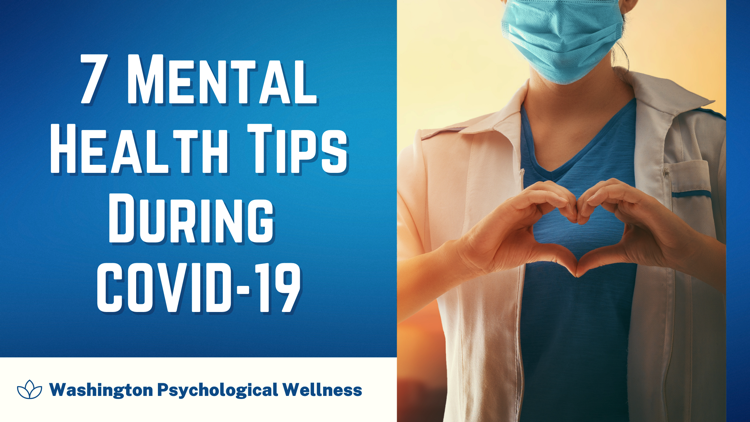
7 Tips to Deal With Anxiety During COVID-19
Anxiety During COVID-19
Anxiety is a normal reaction to uncertainty. Within the last year, the COVID-19 pandemic has disrupted our daily routines, with working from home, virtual learning, and social distancing becoming the new “normal.” Now that schools and businesses are reopening across the United States, many of us worry about our health and the health of our loved ones. This article will give you 7 tips to deal with anxiety during COVID-19.
7 Tips To Deal With Anxiety During COVID-19
1. Focus on what you have control over. It’s natural to worry about things that are outside your control, like the spread of COVID-19. It’s also a waste of time and energy—the mental effort required to worry uses up precious brainpower that could be used to work on things that will actually affect our lives for the better. If we focus our resources on what we can change, we can reduce anxiety related to uncertainty.
2. Avoid media sensationalism. News about the COVID-19 pandemic often makes headlines—sometimes even false ones. By limiting exposure to media that unnecessarily sensationalizes the current situation, you can avoid unnecessary anxiety.
3. Get involved in local events. The COVID-19 pandemic has given local community organizations an opportunity to host a wider variety of events than they might typically be able to hold. If you have time, consider joining in on some of these activities to give yourself something to focus on while you are waiting for COVID-19 to take a more serious turn towards the big screen.
4. Talk with your family and friends about your feelings as well as their own. It’s important to talk about how you feel so that you can manage your anxiety. Everyone is vulnerable differently. Some people are willing to speak more freely than others, and some people will not be able to look at the situation objectively. Talk with your loved ones about what they think about the pandemic and how they will be affected by it while it’s ongoing. You might even want to ask them how they have coped so far and then look for ideas for dealing with COVID-19 yourself.
5. Get outside. Either knock on a neighbor’s door or look for a topical chat room, but get out into the real world. Take walks, play Frisbee with your dog, go to a museum. Most importantly, make sure you are getting enough sleep so that you can manage your anxiety.
6. Know your own limits. This is one of the most important things to remember when managing your anxiety: quantity vs. quality of sleep will be more important than getting enough sleep. If you notice that your sleep habits are changing, such as having insomnia or falling asleep at work, it is good to talk to your physician about the situation.
7. Seek Therapy. Therapy is a way to process your thoughts and feelings. If COVID-19 has you feeling overwhelmed with depression and anxiety, it’s essential that you get help right away so that you can have a better quality of life. It’s also a good idea to talk to your physician, a friend, or anybody else who you trust about how you’re feeling at the moment and get any advice you might need about dealing with depression and anxiety.
Getting Help For Anxiety During COVID-19
Remember that there is only so much that you can do to fight COVID-19. Therefore, it’s essential to be realistic about your ability to protect yourself from the virus. In addition, managing your anxiety will allow you to deal with the rest of life’s challenges more effectively.
By taking these steps, you can reduce your anxiety about uncertainty by better managing your time and energy toward what you can control in this uncertain time. Contact Washington Psychological Wellness for a complimentary 15-minute initial consultation now!
